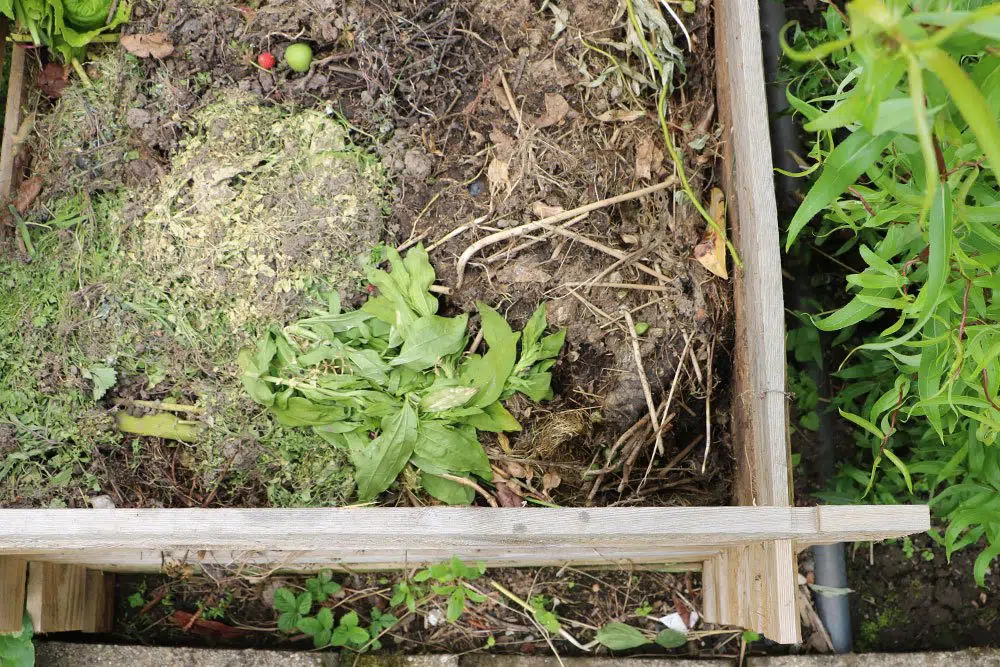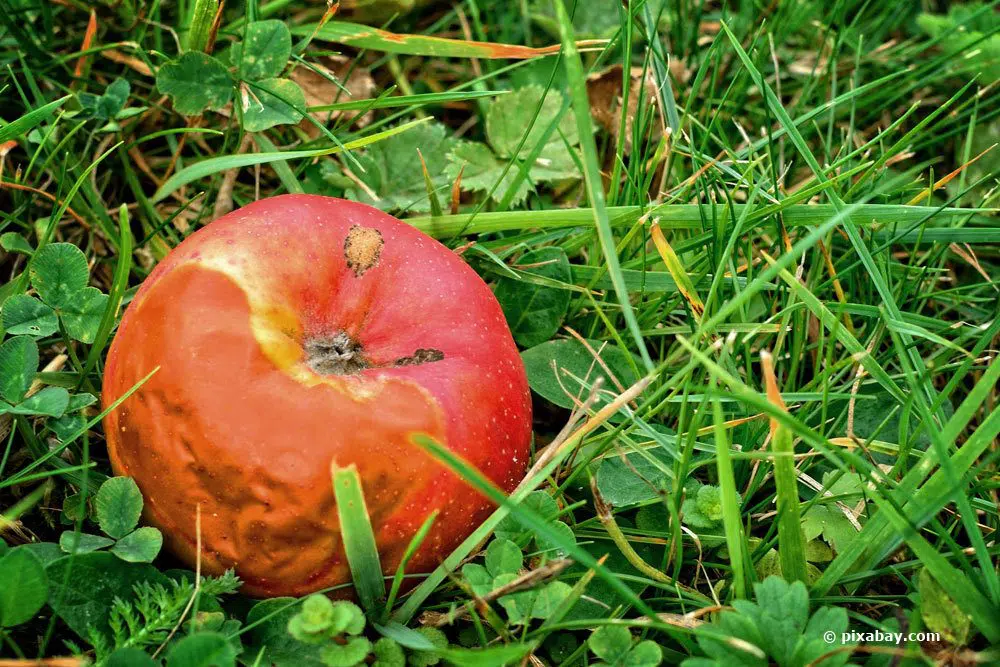As late summer approaches, despair sets in for many garden owners. The fruit ripens almost completely at once. Then, at the latest, fallen fruit is also added and the meadow resembles a colorful orchard. But much earlier, when unripe apples fall from the tree, many amateur gardeners ask themselves the question: Where can rotten apples and other fallen fruit be disposed of?
Contents
Composting
When is fruit ready for the compost and can it go there at all? Fallen fruit that lies on the ground is a breeding ground for all kinds of creatures that you hardly want to have in your garden. Especially sweet fruits and co. attract hordes of wasps and other annoying pests. If the fruit has not been lying around for a long time, it can be eaten without hesitation. However, hardly anyone likes to eat rotten fruit, so you should compost it quickly.

Pests
The problem with fungi
Composting is important not only to avoid attracting pests, but also to prevent fungal infestation of the soil. If you still do not want to dispose of rotten apples and the like, you can cook juices, mush and jams from them. Provided the fruit is not infested with maggots, rotten spots can simply be cut out.
Can apples just be left lying around?
Nature helps to let fallen fruit rot, but this is only possible with small quantities. However, if the amount of fruit is too large, the fruit will rot and attract pests. You can avoid this by burying the fruit. However, it is necessary that you dig at least half a meter, otherwise the fruit will be dug up again by animals

Off to the compost
If the compost is set up correctly and is well aerated, the fruit can also be disposed of there without any problems. With the following tips, you can compost your fallen fruit without hesitation.
- form different layers
- a layer of fruit is followed by brushwood, leaves and others
- use compost accelerators to speed up the decomposition process
- turn the compost at least once a year
Disposal
In principle, you can dispose of unlimited amounts of fruit through the garden compost, but you should follow the stratification plan above. If you throw too much fruit in a pile, the pile will no longer be aerated, mold will develop and fungus will form. If you then use the compost material to fertilize your plants, you will bring fungal spores into the beds and potentially ruin the entire crop. The more frequently you turn the garden compost and ensure that enough air always gets into all layers, the better the quality of the subsequent humus.

